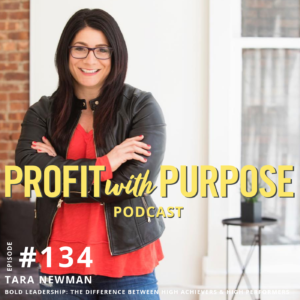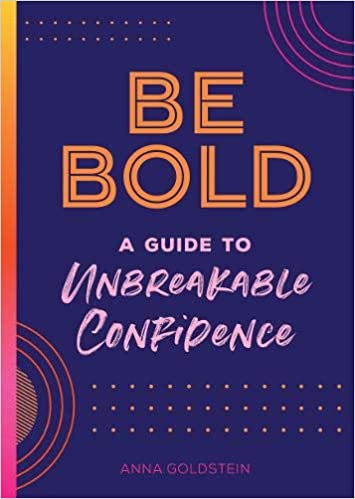In 2009 Tara Newman and her husband declared bankruptcy. The business Tara’s husband had started had failed. In this episode, Tara tells her powerful story.
Tara now has a business of her own. She is a high-performance leadership coach. After years in the corporate world supporting leaders and high performers, she created a thriving business, coaching high-achieving clients. In this episode, she talks about getting through the bankruptcy, starting her own business and how high achievers become high performers.

In 2005, Tara’s husband decided to start a manufacturing business. It came with significant start-up costs to purchase machinery, materials and build out a manufacturing space.
What kind of business?
Her husband manufactured rotationally molded plastic parts which include things like mannequins and rock climbing holds. Initially, he had success but then the 2008 financial crisis happened and people started sending this kind of work to China. They lost two of their biggest customers. Then in 2009, the bank called in their line of credit. They were given 30 days to repay $100000. Tara’s dad was the 3rd partner in the business and he had put up his commercial property as collateral. They were also getting foreclosure notices on their house.
How were you feeling?
Terrified. Shut down. Catatonic. But she was also grateful for what they were going through because she knew it was going to be the greatest lesson of their life if they survived.
Was there an ‘if you survived’?
Tara felt stuck but she didn’t feel hopeless. She knew there was something on the other side of this.
Tell me about the lowest moment.
It was all low. And then there were moments of hope. The book The Secret had just come out and Tara’s mum told her to read it. She read it and it was the right book for her to read at the time. It helped her frame things more positively. It helped her seek solutions from a positive perspective. She started journaling and they had garage sales every weekend to help pay for groceries.
Getting the foreclosure notices was a moment. She didn’t know how to process everything. She had never felt anything so catastrophic in her life.
What was the turning point?
The turning point when the bank called in the note. They were only keeping that business open to meet that financial obligation to the bank. They had the thought that once they had paid back the credit to the bank they could quit the business. After the note was called in Tara’s Dad liquidated some assets to pay it. When Tara and her husband realized that they couldn’t close the business, pay back her Dad and pay the credit card debt they had, they decided to declare bankruptcy.
Tara is a fighter and she decided that this wasn’t going to define her. Even though when they declared bankruptcy, it felt like a death sentence. Tara had been wanted to start her own business and it no longer felt like that could happen.
When did you declare bankruptcy?
In 2010 they declared bankruptcy. So they are in year 9 of an 11-year term.
In 2010 you declared bankruptcy. For the next year, what did that look like?
There is not a lot of information available on how to overcome bankruptcy. Tara’s husband closed the business and was able to liquidate some of the machines and leftover material. He wasn’t in the right state to get a job. So he used some of that money to buy a trailer and do handyman services for a year while he wrapped up the business and figured out what to do next. He felt like a colossal failure and needed a lot of coaching and support to be able to out there and get a job. With Tara’s support, he was able to find a well-paying job.
Over this time they learned so much about money – how to save and leverage their money. They became minimalists and learned that they didn’t need much. Each time they had a garage sale they had to dig a little deeper to find more stuff that they could get rid of
What were you thinking? What was a thought that was going through your mind?
When you go through something so traumatic, the ability to think and feel shuts down. The way you take in information changes. Tara could be in in the line with a cart full of groceries and two babies as her card is being declined.
What’s going through your mind though? Is it ‘I don’t want to be doing this anymore’?
When Tara’s husband was doing the home improvement work, things weren’t much better. And she told him she was done. He needed to go and get a job because she wasn’t losing the house.
And how did you come back?
For the most part, when they were going through this they were terrible communicators. They didn’t want to voice the reality of the situation and talk about being afraid. Once they started talking about it, the stress started to decrease. Having kids helped because they wanted to give them some sense of normalcy. Tara journaled a lot as a way of communicating with herself
What was your first step to working again?
Tara had been working full time throughout this time, even while helping her husband on the business.
What was one of the biggest lessons you learned?
You can live on a lot less than you think you need. They didn’t realize how little they needed to live on and to thrive.
After declaring bankruptcy, her husbands way back to himself was ironman triathlons. He would train 20 hours a week and threw himself into redefining himself and his success. In 2014 he raced Ironman Lake Placid and stood in the finishing circle. Tara looked at him and felt like she was in the shadow of his success. That’s when she decided she was going to start a business. In August 2015 she left her corporate job. She had started her business and it was doing ok. There was enough to indicate that she’d be able to support herself and bring in money.
Were you scared?
She wasn’t scared because she’d spent 9 months building her business while working full-time. She knew that she had started to build something and that the worst that could happen was that she would have to go back to work. She wanted to put away some money because the first year of business was going to have a lot of ups and downs. Her husband declared they were going to go on austerity and spend nothing. Tara knew she couldn’t go back there and that wasn’t going to work for her. She decided they were going to work on what they needed to thrive. She wrote a whole page of things in her journal. And was shocked to realize that none of them cost money.
What was in there?
To have a cozy blanket to sit on the couch with
Intimate time with her husband
Time spent with her kids
Hugging her kids and telling them how important they are to her
Time to read
That list became the basis on how they spent their time, their money and their energy. It allowed them to save a tonne of money. If something wasn’t on their thrive list they didn’t spend money on it and if it was, they did.
I love this idea of what do I need to thrive.
There some things on the list that were silly. Tara knew she wanted a manicure once a week. That made her feel good about herself. It became a touchpoint for herself. She would look at her nails and think where is your mind at if you can’t spend $20 and 45 minutes to get your nails done.
So what happened? Did you start to feel like you were thriving?
Tara really did. She’s been wanting to leave her job for 10 years but the moment when you get the thing you dreamed about, it can be tricky. She had a few moments. She had the thing that she wanted and now she couldn’t lose the thing. In her worst moments, she knew that she just needed to go back to that list of things and she would be alright.
Tara reflects on the failure of her husbands business and realizes that it was not the fault of the economy. They were in survival mode and couldn’t bring themselves to take the actions they should have taken. They could have hired coaches, employed more people or invested in sales training.
Do you think to have a catastrophic failure gave you confidence and showed you how resilient you are?
Absolutely. The worst thing that can happen to her business is that she goes bankrupt. And she’s been there.
Don’t you think that the fear of the worst that can happen stops a lot of people?
Oh yeah.
But you’ve seen it so nothing can stop you because you got through that.
Sometimes we can’t formulate beliefs because we don’t have proof. Tara has found it useful to borrow someone else’s proof. That’s why she shares her bankruptcy story. So that other people can borrow it.
You work with a lot of high performers and achievers. Do you think they take it harder?
When you are a high performer or achiever you face more fear than the average person because you are leaning into your growth edge. You are taking on challenges that most people won’t.
I told one of my clients that she was a high performer because she was being really hard on herself and she was achieving. It was the first time that she had heard that identification for herself. Often high performers look at where they’re lacking because they want to achieve even more.
When Tara worked for a corporate company she was running the performance management function. She created the way they measured performance and helped people evaluate and improve their performance. Every employer who was labeled as high potential would rate themselves harder than anyone else. People who were low potential had an inflated sense of their own performance.
How do you inspire bold leadership for high performers?
Most high performers who think of themselves as high performers are high achievers.
Can you share the difference between a high performer and a high achiever?
Tara thinks that being a high performer or a high achiever are both great things to be. But if you can turn a high achiever into a high performer it makes them even better. High achievers are really hard on themselves, try to control the outcome, set really big goals for themselves and don’t chunk things together. They achieve a lot of amazing stuff but struggle to find their wins and burn the candle at both ends in their pursuit of achievement. High performers know that you can’t burn the candle at both ends and that there is an equation to growth. Stress + Rest = Growth. They are as serious about their recovery as they are about their work.
Sometimes I dance between a high achiever and a high performer. When I’m a high performer, I perform better. When I’m in high achiever mode, I’m typically stressed and unhappy and I know I need to shift. So you can oscillate between the two?
Having an awareness of where you are on the spectrum can help you achieve with greater ease. High performers close the majority of their tabs. They know how to focus and have an appreciation for deep work. High achievers spin out quickly and get distracted. It doesn’t mean they aren’t achieving things. But do all those little achievements add up to the thing you want the most? High performers are incredibly discerning. They will slow down before they speed up. Society wants you to be a high achiever. That’s how we’ve been conditioned. It takes a lot to go against that conditioning and do the deep work on yourself to be a high performer. You have to be really bold, have strong beliefs, strong boundaries and have some unwavering and unapologetic ways about you. And you’re going to piss people off. Not everybody is going to like you or agree with you and that requires you to be bold.
How do you think people can shift into a high-performance mindset? What’s a really practical way people can get into the mindset of a high performer?
Tara likes looking at results. Everything is a result but it may not be the result you want. Was the result you got worth that time and effort? It’s important to be really intentional around your actions.
I have recently shifted from achiever to performer. I put a hard stop to social media. Deleted Facebook, stopped scrolling and now there are no more comparisons. I felt like I was losing time and the result was I was beating myself up about what I wasn’t doing compared to other people. If you’d have told me this in achiever mode I’d have known I should quit social media but said I’m not going to do that right now.
Another thing you should be monitoring are your ‘yeah, buts’. Because it’s a sure sign of resistance.
What’s the best advice you’ve ever been given?
“The secret is I care but not that much.”
Tell us how we can get in touch with you
Instagram: https://www.instagram.com/thetaranewman/
Bold Leadership Podcast: https://www.taranewmancoaching.com/podcast
Links
The Secret by Rhonda Byrne
https://www.amazon.com/Secret-Rhonda-Byrne/dp/1582701709/

Search
Popular Posts
- 02 Mar 2008The Flowering of Human Consciousness 7 Comments
- 01 May 2014Using Visualization to Create What You Want 7 Comments
- 26 Mar 20133 Questions to Change Your Career 4 Comments
- 14 Mar 2014I walked on Fire! 4 Comments
- 29 May 2014How to Bust Through Your Fear 4 Comments

